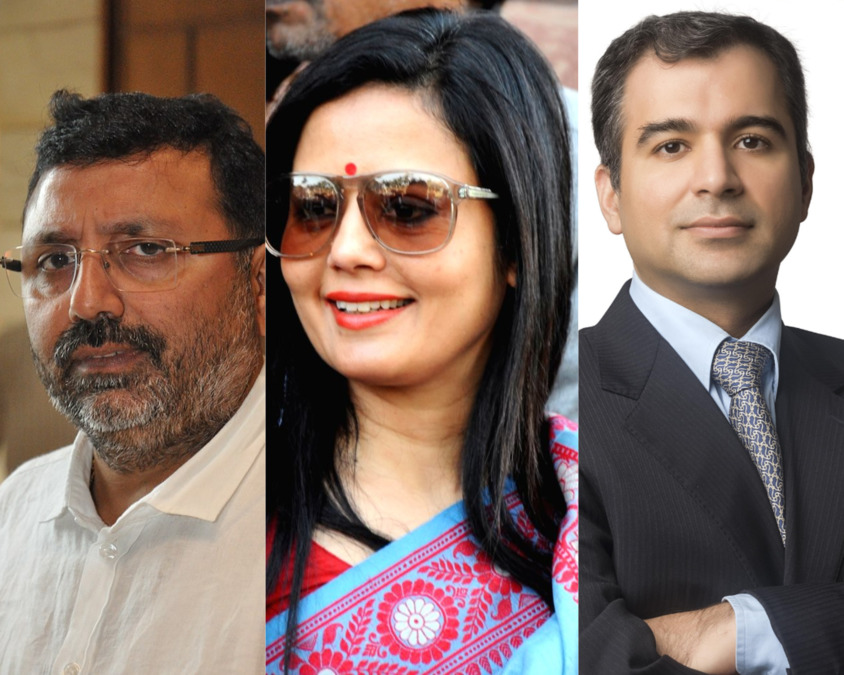In a shocking turn of events, prominent businessman Darshan Hiranandani has been embroiled in a bribery scandal that has sent shockwaves through the Indian political landscape. Darshan Hiranandani, a well-known figure in the corporate world, is accused of offering substantial financial incentives to members of the Bharatiya Janata Party (BJP) to gain favour and influence. This revelation has ignited a firestorm of controversy, raising questions about the ethics and transparency of political-corporate relationships in India.
Table of Contents
The Accusations
The accusations against Darshan Hiranandani stem from a series of investigative reports and whistleblowers who have provided substantial evidence of his alleged involvement in bribery and corruption. According to these reports, Hiranandani is accused of offering substantial sums of money to BJP officials in return for political favours and influence over various policies and projects.
The alleged bribes are said to have been concealed through a complex web of financial transactions and shell companies, making it difficult to trace the money back to its source. This has further fueled the scandal, as investigators work tirelessly to uncover the full extent of Darshan Hiranandani’s alleged misconduct.
Darshan Hiranandani’s background
Darshan Hiranandani is a well-established businessman who has made significant strides in the real estate and construction sectors. Darshan Hiranandani is best known for his role in the Hiranandani Group, a conglomerate that operates in various industries, including real estate, healthcare, education, and hospitality. The Hiranandani Group is renowned for its ambitious and high-profile projects, including the Hiranandani Gardens in Mumbai, which is a prominent example of urban development in India.

Hiranandani’s success and influence have allowed him to establish connections with political figures and parties, particularly the BJP. It is these connections that are now under intense scrutiny as the bribery scandal unfolds.
Political Implications
The involvement of a prominent businessman like Hiranandani in a bribery scandal has far-reaching political implications. The BJP, the ruling party at the time, is under significant pressure to address the allegations and ensure accountability within its ranks. Opposition parties are seizing the opportunity to criticise the BJP’s commitment to eradicating corruption and crony capitalism from Indian politics.
The scandal also highlights broader issues concerning the nexus between politics and big business in India. Critics argue that such relationships can undermine the democratic process and lead to the prioritisation of corporate interests over the welfare of the public.
Response from the BJP
The BJP, through its senior leadership, has vehemently denied any involvement in the bribery scandal. Party spokespersons have asserted that they are fully cooperating with the investigation and are committed to maintaining the highest standards of integrity in politics. The party’s official stance is that they have a zero-tolerance policy for corruption and that anyone found guilty will face severe consequences.
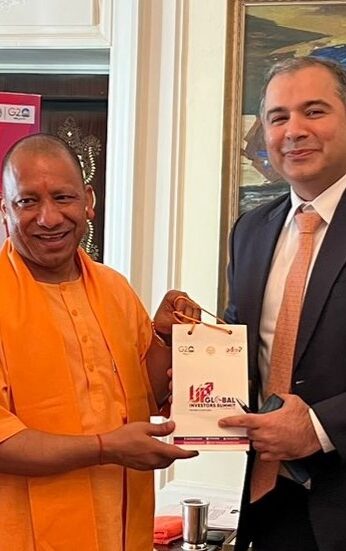
Prime Minister Narendra Modi, a key figure in the BJP, has expressed his disappointment over the scandal and vowed to take strict action if any wrongdoing is established. The BJP’s reputation and electoral prospects are at stake, as the allegations have the potential to tarnish the party’s image in the run-up to the next general elections.
Public outrage and civil society
The allegations against Darshan Hiranandani have triggered a strong public reaction. Protests have erupted in various parts of the country, with demonstrators demanding transparency, accountability, and an end to corruption in Indian politics. Civil society organisations and activists are demanding an independent and impartial investigation into the matter.
This incident has also reignited debates about the role of corporate money in politics. Many argue that strict campaign finance reform is urgently needed to prevent the undue influence of businessmen and corporations on political decisions.
Investigative Efforts
The scandal has put pressure on India’s law enforcement agencies to conduct a thorough and impartial investigation. The Central Bureau of Investigation (CBI) has taken charge of the case, with experts from various fields, including finance, forensics, and cybercrime, joining the probe. The CBI has been scrutinising financial records, bank transactions, and conducting interviews with individuals connected to the case.
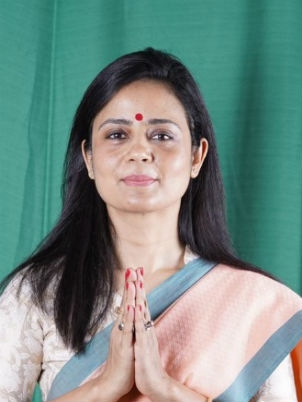
Whistleblowers have played a crucial role in providing valuable information that has advanced the investigation. Their courage in coming forward has been widely praised, and measures are being taken to protect their identities and ensure their safety.
International Scrutiny
The scandal has not gone unnoticed on the international stage. Media outlets from around the world are covering the story, and international organisations are monitoring the developments closely. The transparency and integrity of India’s political system have been called into question, which could have repercussions on India’s standing in the global community.
The legal process
Darshan Hiranandani has been taken into custody pending further investigation. He is facing charges of bribery, corruption, money laundering, and criminal conspiracy. The legal proceedings are expected to be protracted, given the complexity of the case.
Darshan Hiranandani, through his legal team, has maintained his innocence and argued that he is being unfairly targeted for political reasons. Darshan Hiranandani claims that the evidence against him is either fabricated or taken out of context.
Impact on the Business World
The scandal has not only political but also economic implications. The Hiranandani Group’s stock prices have plummeted as investors react to the unfolding events. Several corporate partners have distanced themselves from the group, expressing concerns over their own reputations and ethical standards.

This incident has underscored the potential risks for businesses that become too closely aligned with political interests. It serves as a cautionary tale for other corporations regarding the importance of maintaining ethical boundaries in their interactions with politicians and political parties.
The Ongoing Investigation
The investigation into the Darshan Hiranandani bribery scandal is progressing at a meticulous pace. The Central Bureau of Investigation (CBI), tasked with the case, has been leaving no stone unturned to uncover the truth. The agency has appointed a dedicated team of experts, including financial analysts, forensic accountants, and cybercrime specialists, to delve deep into the allegations against the businessman.
The primary focus of the investigation has been on tracing the complex web of financial transactions that were used to hide the alleged bribes. In this regard, the CBI has been meticulously scrutinising Darshan Hiranandani’s financial records, which have yielded a wealth of information about his financial activities. This has been a challenging task due to the numerous shell companies and offshore accounts associated with the accused.
Additionally, investigators have been conducting interviews with individuals who might have knowledge of the bribery scheme. These interviews have shed light on the extent of the operation and have brought forth further evidence to support the accusations.
The whistleblowers who courageously stepped forward to expose the alleged corruption have been crucial to the investigative process. They have provided detailed accounts of how the bribery scheme operated, the individuals involved, and the methods used to conceal the illicit transactions. To ensure their safety, measures have been put in place to protect their identities, as their cooperation remains paramount to building a robust case against Hiranandani.
The investigation has been characterised by its thoroughness and determination, aiming to leave no room for doubt in the final report. As the evidence against Hiranandani continues to mount, the legal process has commenced in earnest.
Legal Proceedings and Hiranandani’s Defence
Darshan Hiranandani’s arrest and subsequent legal proceedings have been highly publicized. He has been taken into custody, pending further investigation, and is facing a litany of charges, including bribery, corruption, money laundering, and criminal conspiracy. His legal team has been actively engaged in building a defence against these accusations.
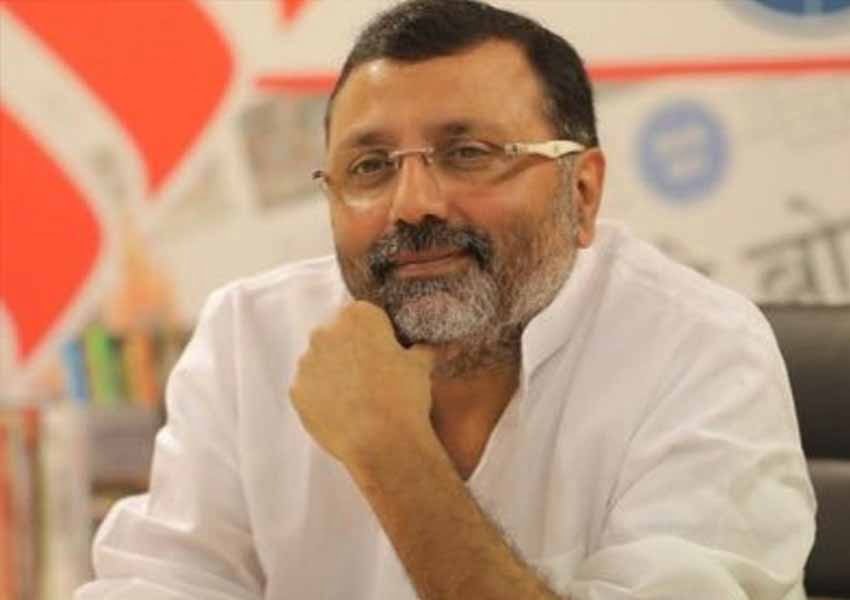
Darshan Hiranandani maintains his innocence, asserting that he is a victim of political vendettas. Darshan Hiranandani legal team claims that the evidence presented against him is either fabricated or taken out of context to tarnish his reputation. They argue that the charges are politically motivated, given his significant influence and business ties, and that the allegations are part of a larger attempt to undermine his business empire.
As the legal battle unfolds, the courtroom proceedings are expected to be protracted, given the complexity of the case and the extensive evidence to be presented. The defence is expected to argue that the evidence against Hiranandani is insufficient to prove his guilt beyond a reasonable doubt and that the allegations are merely a tactic to besmirch his name.
Economic Fallout
The scandal surrounding Darshan Hiranandani has not been confined to the realm of politics and law enforcement; it has had significant economic ramifications as well. The Hiranandani Group, a conglomerate with interests in real estate, healthcare, education, and hospitality, has felt the economic impact of the allegations against its founder.
In the wake of the scandal, the stock prices of companies associated with the Hiranandani Group experienced a sharp decline. Investors, concerned about the potential fallout and legal repercussions, have been cautious about retaining their stakes in these companies. This has not only affected the Hiranandani Group but has also rippled through the broader financial sector.

Furthermore, several corporate partners that had previously collaborated with the Hiranandani Group have distanced themselves from the conglomerate. They cited concerns over their own reputations and ethical standards, given the ongoing investigations and allegations surrounding Darshan Hiranandani. This serves as a stark reminder of the perils of corporate entanglement with individuals under a cloud of suspicion.
The economic fallout of this scandal has sparked discussions about the broader consequences of businesses becoming intertwined with political interests. It underscores the importance of maintaining ethical boundaries in corporate interactions with politicians and political parties. For companies, this incident serves as a warning of the potential risks associated with such associations and the need for robust due diligence when engaging in political affairs.
The road ahead
As the investigation continues, the Indian public is anxiously awaiting the outcome and hoping for justice to be served. The future of the BJP and its image in the eyes of the public will largely depend on how the party handles this crisis and whether it can convincingly demonstrate its commitment to weeding out corruption from its ranks.
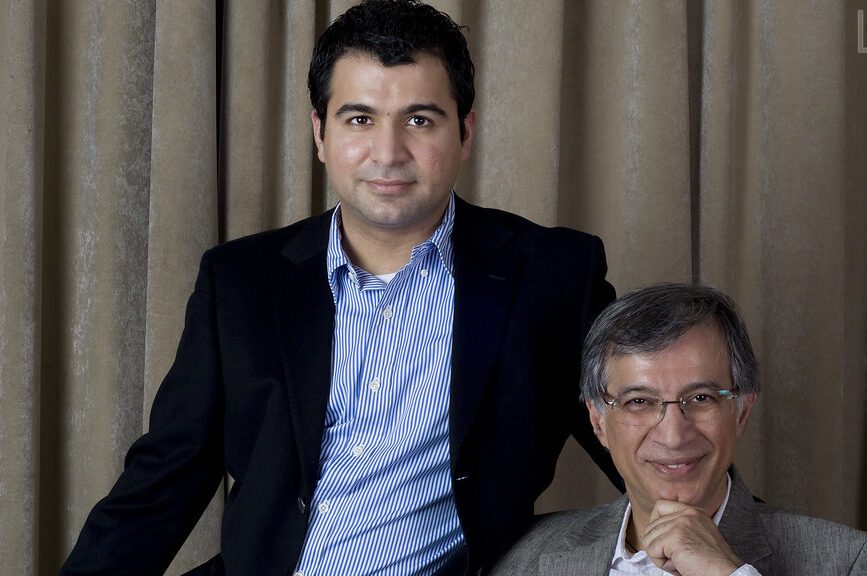
The Hiranandani case has also raised fundamental questions about the intersection of money, politics, and power in India. It is likely to serve as a catalyst for broader discussions on campaign finance reform, corporate influence in politics, and the need for stricter regulations to prevent corruption in the political sphere.
The outcome of this case will undoubtedly have a lasting impact on India’s political landscape and its approach to tackling corruption. It is a test of the nation’s commitment to upholding the principles of transparency, accountability, and justice in its political and corporate spheres.
The future of the Bharatiya Janata Party (BJP) hinges on how it handles this crisis. The party is under significant pressure to address the allegations and ensure accountability within its ranks. The reputation of the party, its leaders, and its electoral prospects are at stake, with the potential to significantly impact the next general elections.
The Darshan Hiranandani case is a test of India’s commitment to upholding the principles of transparency, accountability, and justice in both its political and corporate spheres. It is an opportunity for the nation to demonstrate that the rule of law prevails over political influence and that those who engage in corruption will be held accountable. As the investigation unfolds and the legal process continues, the eyes of India and the world remain fixed on the outcome, waiting to see how this high-profile scandal will reshape the country’s future.
Read More: Opposition Alliance’s Ultimate Power Move to Uproot BJP: The 2023 Strategy


